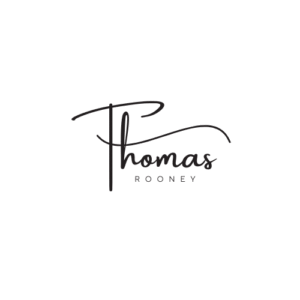In the ever-evolving field of IT consulting, technical skills and solutions are only half the battle. What truly sets successful consultants apart is their ability to build strong, lasting relationships with their clients. A strong client relationship not only leads to successful projects but also paves the way for future opportunities and referrals. In this blog post, we’ll delve into the various strategies and best practices for fostering robust client relationships in the IT consulting industry.
Understanding the Client’s Needs
The foundation of any strong client relationship is a deep understanding of their needs and objectives. This goes beyond simply gathering technical requirements. To truly align with your client, you must take the time to understand their business goals, challenges, and the specific outcomes they hope to achieve.
- Conduct thorough discovery sessions: Schedule initial meetings to ask open-ended questions, allowing the client to express their needs, pain points, and aspirations in their own words.
- Create detailed documentation: Summarize the insights gathered during discovery sessions into a comprehensive document that outlines the project’s scope, goals, and expectations.
- Validate your understanding: Regularly check in with the client to confirm that your understanding of their needs is accurate and up-to-date.
Effective Communication
Communication is the lifeblood of any relationship, and client relationships are no exception. Clear, consistent, and transparent communication helps to manage expectations, prevent misunderstandings, and build trust.
- Set communication protocols: Establish preferred communication channels (e.g., email, phone, video calls) and agree on response times to ensure timely interactions.
- Regular updates: Provide frequent status updates to keep the client informed about progress, potential roadblocks, and any changes in project scope.
- Active listening: Show that you value the client’s input by actively listening, paraphrasing their points, and responding thoughtfully.
Delivering Consistent Value
To build a strong relationship, it’s crucial to consistently deliver value to your client. This means not only meeting but exceeding their expectations whenever possible.
- Quality deliverables: Ensure that your work meets high-quality standards and fulfills the agreed-upon requirements.
- Proactive problem-solving: Anticipate potential issues before they arise and offer solutions that preemptively address them.
- Be a trusted advisor: Provide strategic insights and recommendations that go beyond the immediate project, positioning yourself as a valuable partner in their long-term success.
Building Trust and Credibility
Trust is the cornerstone of a strong client relationship. Building trust requires consistency, reliability, and integrity in all your interactions.
- Deliver on promises: Follow through on commitments and deliver on time, consistently.
- Be honest and transparent: Communicate openly about progress, challenges, and any changes that may impact the project.
- Admit mistakes: If errors occur, take responsibility, communicate transparently, and focus on finding a solution.
Flexibility and Adaptability
In the dynamic world of IT consulting, projects often undergo changes in scope, requirements, and timelines. Being flexible and adaptable is key to maintaining a strong client relationship during these shifts.
- Embrace change: Show a positive attitude towards change and demonstrate your ability to adapt quickly and effectively.
- Stay solution-focused: When changes occur, focus on identifying and implementing the best possible solutions rather than dwelling on the challenges.
- Manage expectations: Clearly communicate the implications of changes to the client and reset expectations accordingly.
Ongoing Relationship Management
Building a strong client relationship is an ongoing process that extends beyond the completion of a project. Continual relationship management helps to ensure long-term satisfaction and opens the door to future collaborations.
- Regular check-ins: Even after the project is completed, schedule periodic check-ins to discuss the project’s impact, address any new needs, and explore future opportunities.
- Solicit feedback: Actively seek feedback on your performance and use it to improve your services and client interactions.
- Stay engaged: Keep the client informed about relevant industry trends, new technologies, and potential opportunities that may benefit their business.
Conclusion
Building strong client relationships in IT consulting requires a blend of technical expertise and interpersonal skills. By understanding the client’s needs, communicating effectively, delivering consistent value, building trust, staying flexible, and managing the relationship over time, you can create partnerships that are beneficial for both you and your clients. As you cultivate these relationships, you’ll find that the rewards extend far beyond individual projects, leading to sustained success and growth in your IT consulting career.

